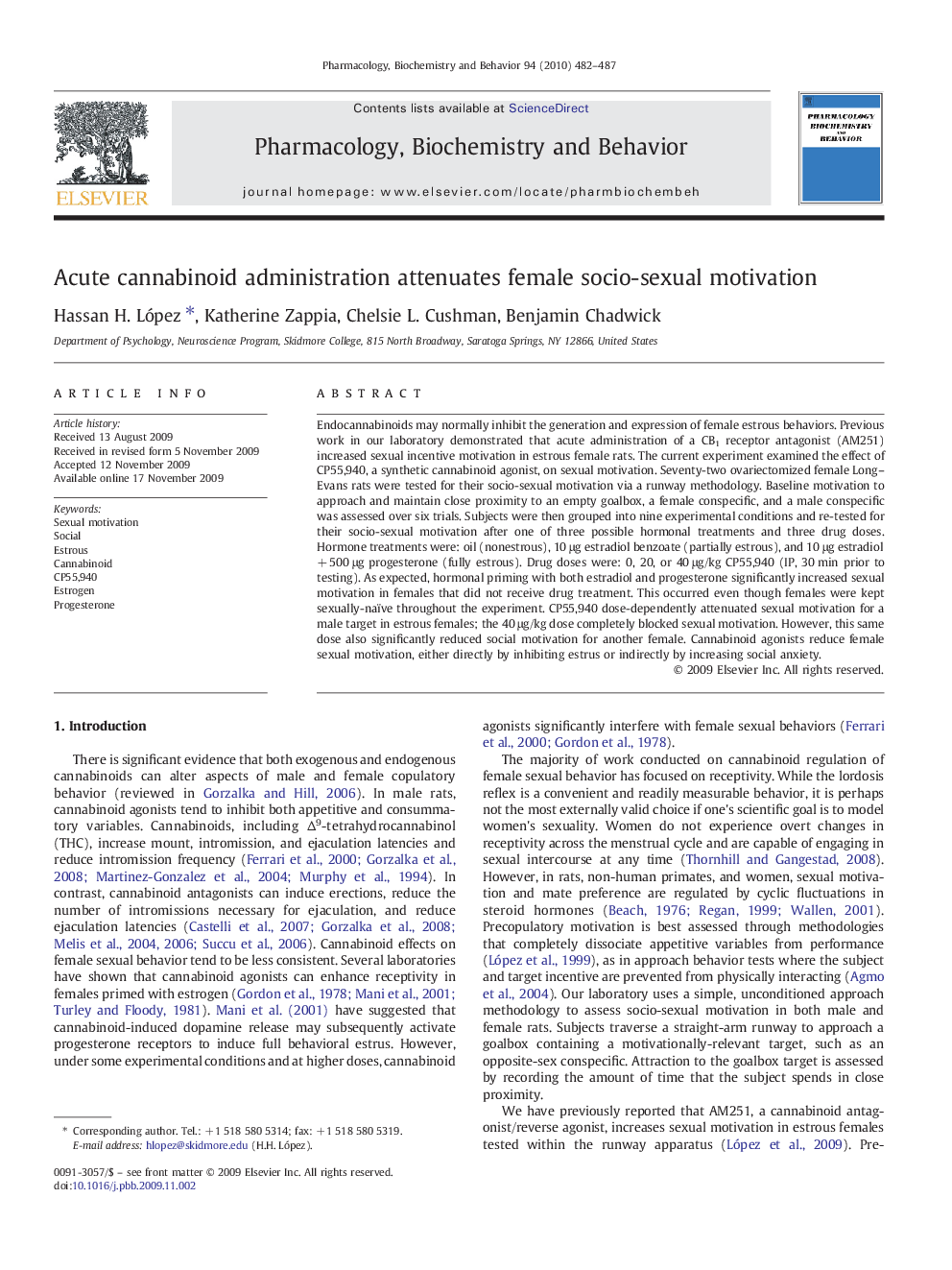| Article ID | Journal | Published Year | Pages | File Type |
|---|---|---|---|---|
| 2013196 | Pharmacology Biochemistry and Behavior | 2010 | 6 Pages |
Endocannabinoids may normally inhibit the generation and expression of female estrous behaviors. Previous work in our laboratory demonstrated that acute administration of a CB1 receptor antagonist (AM251) increased sexual incentive motivation in estrous female rats. The current experiment examined the effect of CP55,940, a synthetic cannabinoid agonist, on sexual motivation. Seventy-two ovariectomized female Long–Evans rats were tested for their socio-sexual motivation via a runway methodology. Baseline motivation to approach and maintain close proximity to an empty goalbox, a female conspecific, and a male conspecific was assessed over six trials. Subjects were then grouped into nine experimental conditions and re-tested for their socio-sexual motivation after one of three possible hormonal treatments and three drug doses. Hormone treatments were: oil (nonestrous), 10 μg estradiol benzoate (partially estrous), and 10 μg estradiol + 500 μg progesterone (fully estrous). Drug doses were: 0, 20, or 40 μg/kg CP55,940 (IP, 30 min prior to testing). As expected, hormonal priming with both estradiol and progesterone significantly increased sexual motivation in females that did not receive drug treatment. This occurred even though females were kept sexually-naïve throughout the experiment. CP55,940 dose-dependently attenuated sexual motivation for a male target in estrous females; the 40 μg/kg dose completely blocked sexual motivation. However, this same dose also significantly reduced social motivation for another female. Cannabinoid agonists reduce female sexual motivation, either directly by inhibiting estrus or indirectly by increasing social anxiety.
